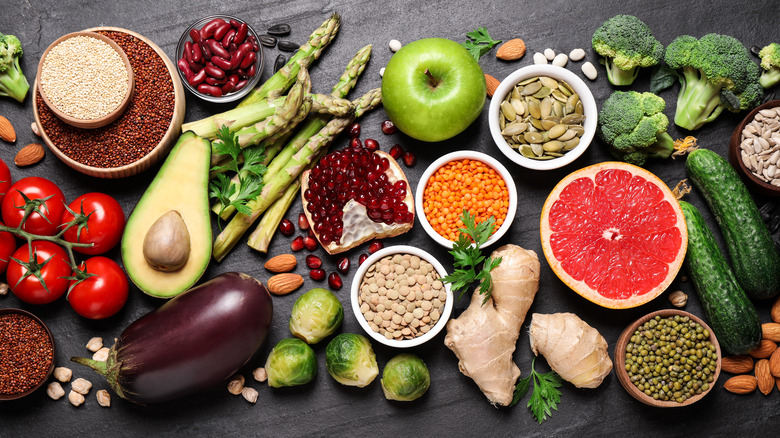How To Eat Healthy When You're Dealing With Depression
When you're depressed, it can be hard to maintain a healthy and well-balanced diet. For some people with depression, this means not getting enough nutrients to sustain one's body throughout the day. That's because some of the main symptoms of depression include loss of motivation, low energy, and poor concentration, all of which can make it increasingly difficult for someone to take proper care of themselves (via Everyday Health). At the same time, others may be inclined to eat more than usual, relying on high-calorie sweets and comfort foods to help soothe their symptoms.
As it turns out, however, what you eat can affect your mood and mental health. According to registered dietitian Leigh Merotto, the food you eat can impact both your mental and physical well-being. "If you prioritize consuming enough plant-based foods, fruits and vegetables, and healthy fats, and eating regularly throughout the day, it can make a great difference in terms of your overall health and well-being," Merotto told Everyday Health.
Eat more nutrient-dense foods
Fortunately, there are a few steps you can take to help you eat healthier when you're feeling depressed. According to WebMD, cooking and sharing a meal with a friend or loved one can help improve your mood and get some food in your stomach when you don't feel like eating. It's also important to eat foods that will have a positive impact on your mind and body. For instance, health experts recommend sticking to nutrient-dense foods like fruits, vegetables, whole grains, lean meats, and low-fat dairy products.
"These foods are more likely to keep your mood stable than processed foods and foods with added sugar," Rosa Schnyer, a clinical assistant professor at the University of Texas College of Pharmacy, told WebMD. Eating three regular meals or five smaller meals throughout the day can also help regulate your mood, as well as eating healthy snacks, like nuts, fruit, yogurt, carrot sticks, and hummus. In order to prevent any major mood swings or spikes in blood sugar, you should try to avoid drinking alcohol, and eliminate caffeine and added sugar from your diet.


